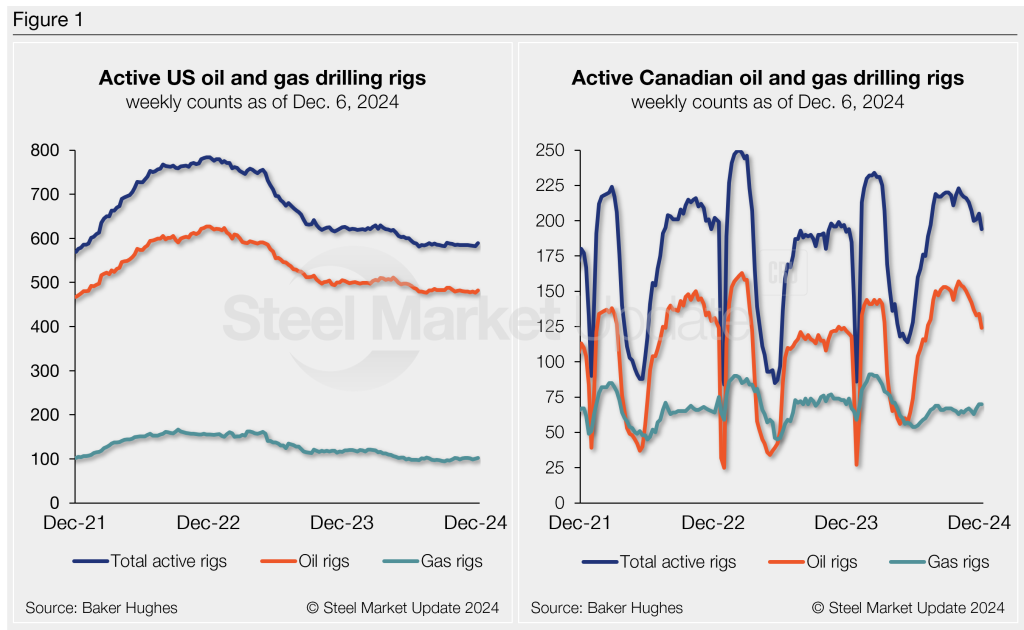Analysis

December 6, 2024
US rig count rises, Canada count falls
Written by David Schollaert
The US drill rig count increased by seven this week, while the Canadian count dropped by 11, according to the latest data from Baker Hughes.
US rig activity has remained around a multi-year low territory since June despite the recent boost. Drilling in Canada has edged lower across the last few weeks but remains historically strong.
US rigs
Through the week ending Dec. 6, 589 active rigs were operating in the US, seven more than the previous week. This count was made up of 482 oil rigs, 102 gas rigs, and five miscellaneous rigs. There were 37 fewer rigs operating last week than the same week one year earlier.
Canadian rigs
There were 194 active rigs in Canada last week, 11 fewer than the previous week. This count included 124 oil rigs, 70 gas rigs, and no miscellaneous rigs. There was no change in overall rig operation last week vs. a year ago.

International rig count
The international rig count is a monthly figure updated at the beginning of each month. The total number of active rigs for November fell to 919, down 31 from October and down by 59 from a year ago.

The Baker Hughes rig count is important to the steel industry because it is a leading indicator of demand for oil country tubular goods (OCTG), a key end market for steel sheet. A rotary rig rotates the drill pipe from the surface to either drill a new well or sidetrack an existing one. For a history of the US and Canadian rig counts, visit the rig count page on our website.






